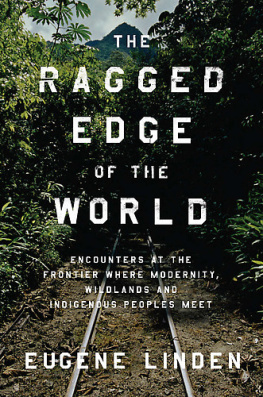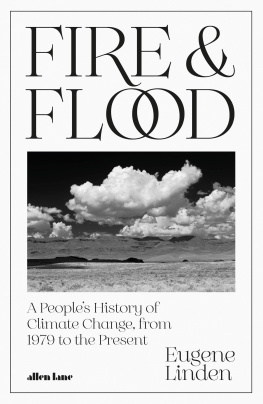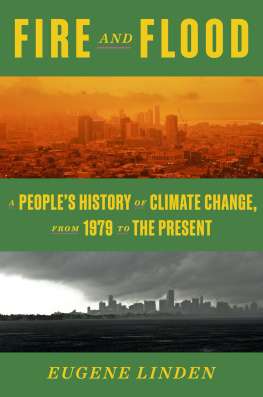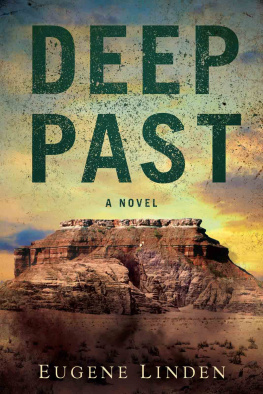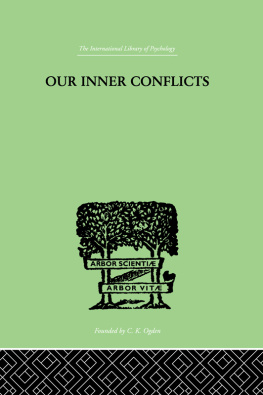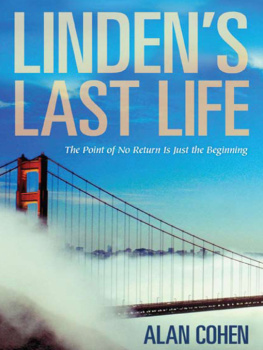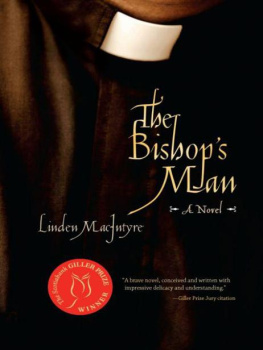
Table of Contents
ALSO BY EUGENE LINDEN
The Winds of Change
The Octopus and the Orangutan
The Parrots Lament
The Future in Plain Sight
Silent Partners
Affluence and Discontent
The Alms Race
Apes, Men, and Language

VIKING
Published by the Penguin Group
Penguin Group (USA) Inc., 375 Hudson Street, New York, New York 10014, U.S.A.
Penguin Group (Canada), 90 Eglinton Avenue East, Suite 700, Toronto, Ontario, Canada M4P 2Y3 (a division of Pearson Penguin Canada Inc.)
Penguin Books Ltd, 80 Strand, London WC2R 0RL, England
Penguin Ireland, 25 St. Stephens Green, Dublin 2, Ireland (a division of Penguin Books Ltd)
Penguin Books Australia Ltd, 250 Camberwell Road, Camberwell, Victoria 3124, Australia (a division of Pearson Australia Group Pty Ltd)
Penguin Books India Pvt Ltd, 11 Community Centre, Panchsheel Park, New Delhi-110 017, India
Penguin Group (NZ), 67 Apollo Drive, Rosedale, North Shore 0632, New Zealand (a division of Pearson New Zealand Ltd)
Penguin Books (South Africa) (Pty) Ltd, 24 Sturdee Avenue, Rosebank, Johannesburg 2196, South Africa
Penguin Books Ltd, Registered Offices: 80 Strand, London WC2R 0RL, England
First published in 2011 by Viking Penguin, a member of Penguin Group (USA) Inc.
Copyright Eugene Linden, 2011
All rights reserved
eISBN : 978-1-101-47613-0
LIBRARY OF CONGRESS CATALOGING -IN-PUBLICATION DATA
Linden, Eugene.
The ragged edge of the world : encounters at the frontier where modernity, wildlands
and indigenous peoples meet / Eugene Linden.
p. cm.
Includes index.
1. Indigenous peoplesSocial conditions. 2. Indigenous peoplesEcology.
3. Indigenous peoplesHistory. 4. First contact of aboriginal peoples with WesternersHistory.
I. Title.
GN380.L555 2011
303.482dc22
2010043578
Without limiting the rights under copyright reserved above, no part of this publication may be reproduced, stored in or introduced into a retrieval system, or transmitted, in any form or by any means (electronic, mechanical, photocopying, recording, or otherwise), without the prior written permission of both the copyright owner and the above publisher of this book.
The scanning, uploading, and distribution of this book via the Internet or via any other means without the permission of the publisher is illegal and punishable by law. Please purchase only authorized electronic editions and do not participate in or encourage electronic piracy of copyrightable materials. Your support of the authors rights is appreciated.
http://us.penguingroup.com
For my children,
their children yet to be born
and all those on whom it will fall
to restore this tattered planet
Introduction
I never boarded an airplane before college, but just a year after graduation I began a series of forays to some of the most remote, wild and calamitous parts of the globe. First I went to Vietnam as a journalist, making a round-the-world trip out of the getting there and getting back. Then it was off to Africa and New Guinea during the writing of my early books, and then virtually everywhere else as a journalist reporting on global environmental issues for Time, and on assignment for National Geographic and other magazines.
These travels were prompted by diverse writing assignments, but all were informed by a hunger to see what I call the ragged edge of the world, the places where wildlands, indigenous cultures and modernity collide. Since my childhood, when I watched rustic neighborhoods give way to strip malls and tract homes, Ive been acutely sensitive to change and loss. Those feelings intensified as I traveled to places such as Polynesia, Borneo, the Amazon and the Arctic. Time and again I saw traditional cultures encounter and succumb to the power of modern money, technology, ideas and images. Even places with no humans whatsoever feel the force of our presence. In the Ndoki, a remote and magical rainforest in the Congo where not even the Pygmies have ventured during the past thousand years, the impact of humanity intrudes in the dust that blows in from the desertified Sahel in the north, and in an ominous drying-out of the forest due to logging in the surrounding areas.
Nostalgia is the word we use to describe the bittersweet evocation of precious feelings that lie just beyond reach in the past. Often the emotion arises during rites of passage or out of the intricate matrix of personal history, memory and place, but what word or phrase adequately describes the feelings evoked by repeatedly observing the disappearance of an entire landscape, a people, a language, or a way of life? It is akin to forever showing up for the last scenes of a tragedy in which one can glimpse, but never fully experience, the past glory of the protagonist.
In the course of my career, I became a monitor of the march of modernity. Like some modern Josephus, in my forty years of travels I have witnessed the battles at the front lines of change, followed the retreat of the world where magic still lives and where animals and spirits dominate. And I have documented the human and animal detritus left behind in the aftermath of the advancing armies of the consumer society.
Today, many of the locales of my early travels bear little resemblance to the places I first visited. Even the most remote areas have become more accessible. Three years before I explored the Ndoki Forest, it took five days to negotiate the quicksand and swamps that guard the perimeter of this enchanted place. By 1991, when I traveled there, scientists had laid down some logs as a primitive path through part of the swamp, and it took us a day and a half to get from the tiny village of Bomassa to the edge of the river and swamps that isolate the Ndoki from the rest of the Congo. Now a car can take visitors to the banks of the Ndoki River in half an hour. Mike Fay, the explorer who brought me into the Ndoki, says that the first alarms about threats to the region were met with skepticism because a huge buffer of uncut forest surrounded it. Now every forest surrounding the Ndoki has been logged.
The Ndoki persists inviolate, however, while other places and peoples I visited havent been so lucky. I traveled to the interior of Borneo in the early 1990s to write about the disappearing way of life of the Penans, a tribe of the last few hunter-gatherers remaining on that vast island. I witnessed firsthand a type of cultural Alzheimers as Penans just a few years and a few miles from their ancestral forests were quickly shedding knowledge acquired over millennia. Schoolkids in Marudi could recall that their uncles would hunt boar after the appearance of a particular butterfly, but they could not recall which butterfly it was or when it appeared. Now only a handful of Penans preserve that culture in Borneos fast-disappearing forests.
When I visited Chico Mendezs home in Acre, Brazil, in the late 1980s, Xapuri was a sleepy one-horse river town separated from the rest of the state by unbroken rainforest. Now the town has supermarkets and a highway connecting it to Rio Branco, the state capital. Some rubber tappers remain, but Xapuri now also has factories, and kids with bookbags walk along its suburban roads.
Some cultures have shown remarkable resilience in maintaining their identity while trying to reap some of the benefits of material advances. In Polynesia many of the outward trappings of the old ways have disappeared, but some islands retain a distinctly Polynesian spirit in their way of life.
Next page
